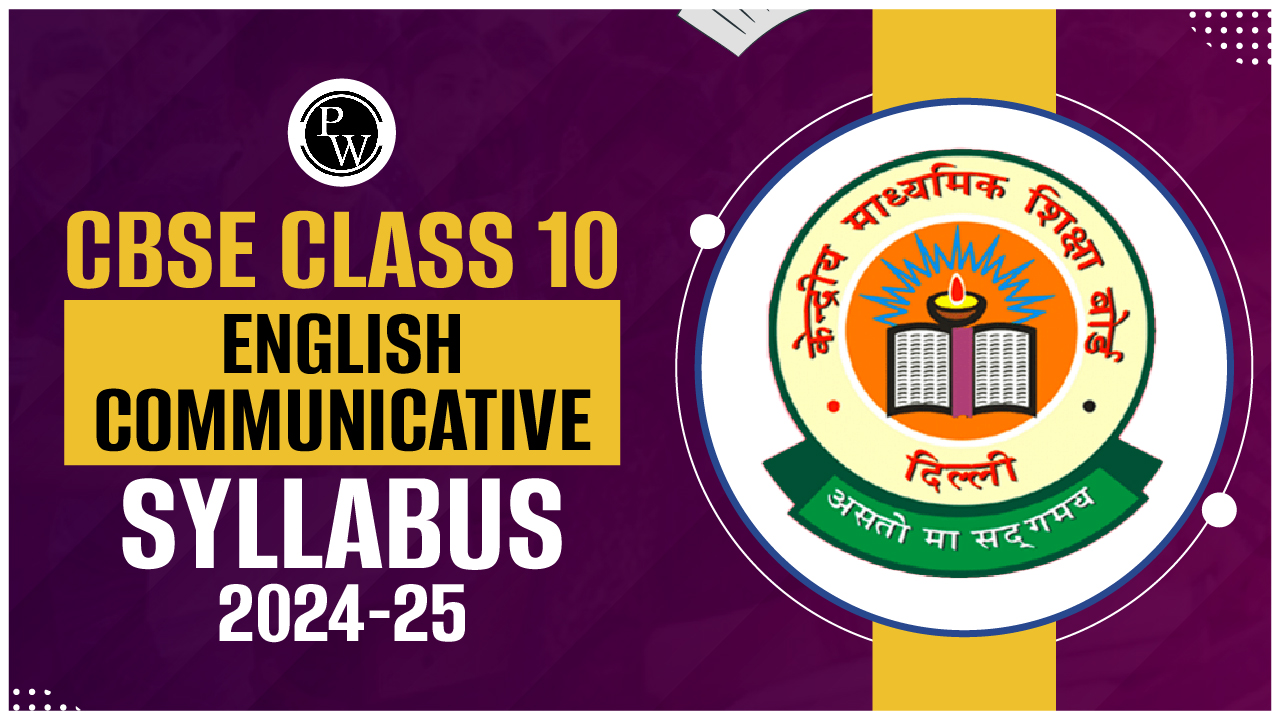NCERT Solutions Class 10 Economics Chapter-Wise

NCERT Solutions Class 10 Economics Chapter-Wise:- When preparing for Class 10 Social Science, students need to cover four subjects: Geography, History, Civics, and Economics. Among these, Economics helps students understand how a country develops, how different sectors contribute to the economy, and how globalisation affects our daily lives. NCERT provides well-structured and simple explanations for all these topics, making learning easier.
To score well in CBSE Class 10 Economics, students should strictly follow the NCERT textbook and refer to NCERT Solutions for Class 10 Economics Chapter-Wise. These solutions provide clear and accurate answers to all textbook questions, ensuring a strong understanding of concepts like development, sectors of the economy, money and credit, globalisation, and consumer rights. Since most exam questions are directly based on NCERT content, studying these solutions will help in effective revision and boosts confidence for exams.
By using economics class 10 NCERT Solutions, students will easily understand key economic terms and improve their answer-writing skills. These solutions not only simplify complex concepts but also help students structure their responses better, ensuring they perform well in exams. Check out the below article for NCERT Solutions Class 10 Economics Chapter-Wise.
Class 10 Economics Chapters
The Class 10 Economics book, Understanding Economic Development, consists of five chapters. Check out the CBSE Class 10 Economics Chapters below:-
|
Class 10 Economics Chapters |
|
|
Chapter No. |
Chapter Name |
|
1 |
Development |
|
2 |
Sectors of the Indian Economy |
|
3 |
Money and Credit |
|
4 |
Globalisation and the Indian Economy |
|
5 |
Consumer Rights |
NCERT Solutions Class 10 Economics Chapter-Wise
Check out the NCERT solutions for class 10 Economics below:-
Chapter 1 - Development
Development means different things to different people. For some, it may mean earning more money, while for others, it could mean having better healthcare and education. This chapter helps students understand what true development is and how we measure it using factors like per capita income, literacy rate, and life expectancy. It also explores the Human Development Index (HDI) and why sustainability is important for long-term growth. The chapter encourages students to think about whether economic growth alone is enough to improve people’s lives. Check out the economics class 10 chapter 1 question answer below.
NCERT Solutions Class 10 Economics Chapter 1
Chapter 2 - Sectors of the Indian Economy
Every country’s economy is made up of different types of work, which are divided into three sectors—Primary (farming, fishing, mining), Secondary (manufacturing, construction), and Tertiary (services like banking, education, and healthcare). This chapter explains how these sectors function and why some are more important in certain situations. It also discusses the difference between organised and unorganised sectors and how workers in these sectors face different challenges. Understanding these sectors helps students see how the economy functions and provides employment to people. Go through the economics class 10 chapter 2 question answer below.
NCERT Solutions Class 10 Economics Chapter 2
Chapter 3 - Money and Credit
Imagine a world without money—how would people trade? This chapter explains how money was invented and how it makes buying and selling things easier. It also explores the concept of credit—borrowing money from banks and other sources. Students will learn about formal (banks) and informal (moneylenders) sources of credit and how loans can sometimes help people grow their businesses but also push them into debt if not used wisely. The role of Self-Help Groups (SHGs) in helping small borrowers, especially in rural areas, is also discussed. Go through the class 10 economics chapter 3 questions and answers here.
NCERT Solutions Class 10 Economics Chapter 3
Chapter 4 - Globalisation and the Indian Economy
Today, you can buy a mobile phone made in China, clothes from Europe, and food from different parts of India. This is because of globalisation, which has made the world more connected. This chapter explains how businesses, technology, and trade have helped companies grow beyond their own countries. Students will learn how multinational companies (MNCs) operate in India, the role of the government in global trade, and how globalisation has both benefits and challenges for local businesses and workers. Check out the class 10 economics chapter 4 questions and answers below.
NCERT Solutions Class 10 Economics Chapter 4
Chapter 5 - Consumer Rights
Have you ever bought something that turned out to be fake or of poor quality? This chapter teaches students about consumer rights and how people can protect themselves from unfair trade practices. It talks about laws like the Consumer Protection Act and the importance of being an informed buyer. The chapter also discusses how consumer movements have helped bring changes and why it is important for everyone to stand up against fraud, misleading advertisements, and unfair pricing. Check out the class 10 economics chapter 5 questions and answers below.
NCERT Solutions Class 10 Economics Chapter 5
CBSE Class 10 2025 Sample Papers
Preparing for the CBSE Class 10 board exams will require good practice, and solving CBSE Class 10 2025 Sample Papers will help students understand the exam pattern and question types. These papers follows the latest syllabus and marking scheme, making it easier for students to get familiar with the actual exam.
By solving sample papers, students will be able to check their preparation, find out which topics need more revision, and improve their time management. It will also help in reducing exam stress and build confidence.
How to Prepare for Class 10 Economics?
Economics class 10 is an important part of Social Science that helps students understand key economic concepts, including development, sectors of the economy, money and credit, globalisation, and consumer rights. Check How to Prepare for Class 10 Economics:-
1. Understand the Syllabus and Exam Pattern
Before starting your preparation, go through the CBSE syllabus and marking scheme. Understanding the weightage of each chapter will help you plan your studies better. The syllabus includes:
-
Chapter 1 – Development
-
Chapter 2 – Sectors of the Indian Economy
-
Chapter 3 – Money and Credit
-
Chapter 4 – Globalisation and the Indian Economy
-
Chapter 5 – Consumer Rights
2. Follow the NCERT Textbook Thoroughly
The NCERT book is the most important resource for Class 10 Economics. Read each chapter carefully, understand the concepts, and highlight important points. Since most exam questions are directly based on NCERT, make sure you do not skip any topic. Solve NCERT solutions for class 10 economics as much as you can.
3. Use NCERT Solutions for Better Understanding
Referring to NCERT Solutions for Class 10 Economics will help you understand how to answer different types of questions effectively. These solutions provide clear explanations and structured answers, which can improve your writing skills in exams.
4. Make Notes for Quick Revision
While studying, make short notes of key points, definitions, and important facts. Writing down concepts like GDP, per capita income, Human Development Index (HDI), organised and unorganised sectors, and trade policies will help in quick revision before exams.
5. Practice Answer Writing
Since Economics involves both theoretical and application-based questions, practicing answer writing is important. Try to:
-
Write structured answers with proper introduction, explanation, and conclusion.
-
Use diagrams and examples wherever needed.
-
Keep answers clear and to the point.
6. Solve Sample Papers and Previous Year Papers
Practicing CBSE Class 10 Economics Sample Papers and previous year question papers will help you understand the types of questions asked in the exam. It will also improve your time management skills and boost confidence.
7. Revise Regularly
Regular revision is key to remembering important concepts. Allocate time every week to revise previous chapters and solve practice questions. Focus more on topics where you face difficulty.
8. Understand Case Studies and Real-Life Applications
Economics is not just about theory; it is also about understanding how economies work in real life. Pay attention to case studies and examples given in the book. This will help you answer application-based questions easily.
9. Clear Your Doubts
If you have any doubts, ask your teacher or refer to additional study materials. Understanding concepts properly will make it easier to write accurate answers in exams.
10. Stay Consistent and Stay Positive
Consistency is important while preparing for Class 10 Economics. Study a little every day instead of cramming everything at the last moment. Stay positive, practice regularly, and focus on understanding the concepts rather than just memorising them.
Also Check, CBSE Class 10th Revision Books
NCERT Solutions Class 10 Economics FAQs
-
What is the most useful book for Class 10 Economics?
The NCERT textbook is the main book for Class 10 Economics. It explains all topics in detail and most exam questions come from it. -
How can I score well in Class 10 Economics?
To score well, read the NCERT book carefully, practice writing answers, solve sample papers, and revise key concepts regularly. -
Are NCERT solutions enough for Class 10 Economics?
Yes, NCERT solutions cover all topics clearly. Along with them, solving sample papers and previous year papers will help in better preparation. -
What are the important topics in Class 10 Economics?
Important topics include Development, Sectors of the Indian Economy, Money and Credit, Globalisation and the Indian Economy, and Consumer Rights. -
Are case studies important in Class 10 Economics?
Yes, case-study-based questions are often asked in exams. Understanding how economic concepts work in real life will help in answering them correctly.











